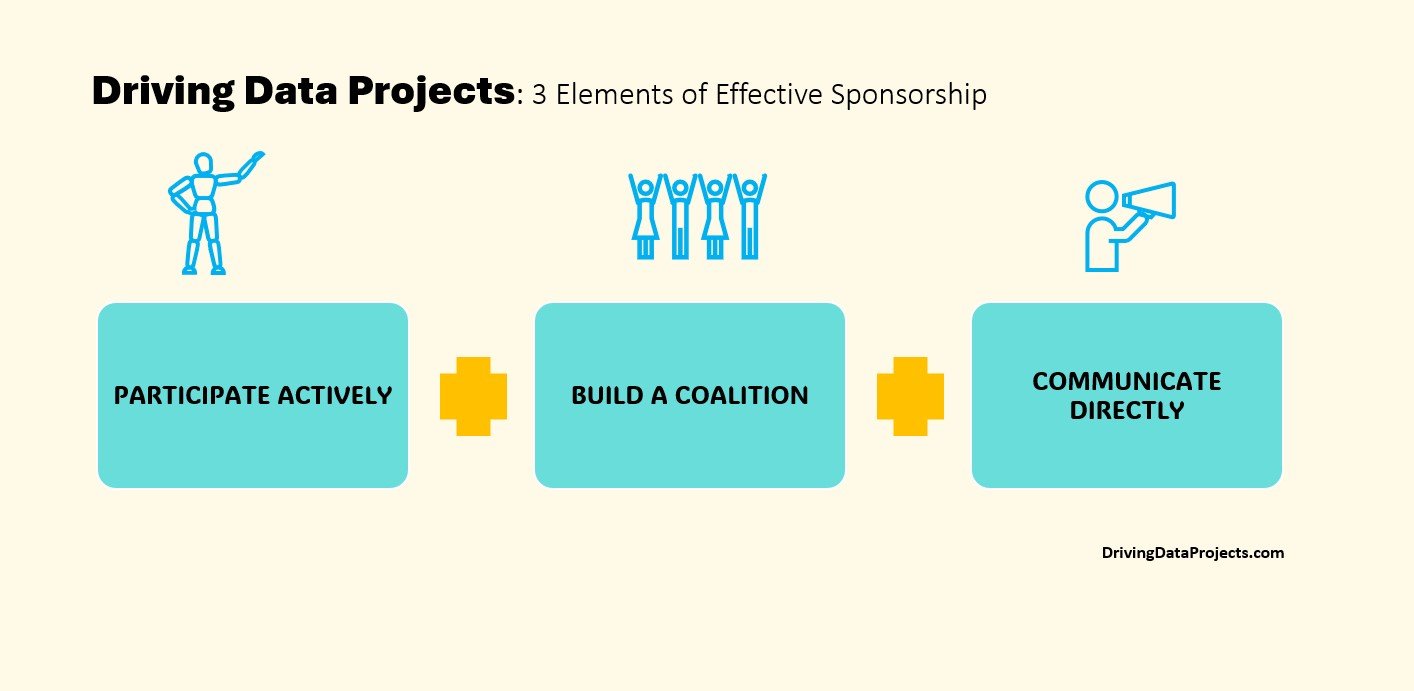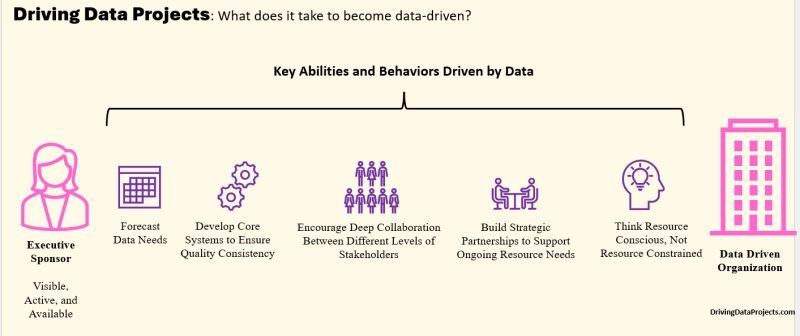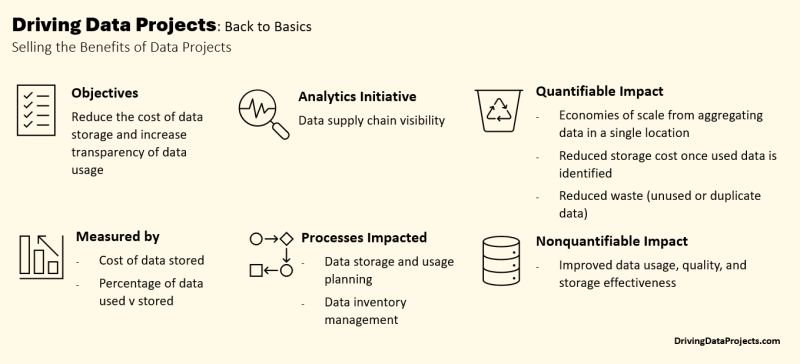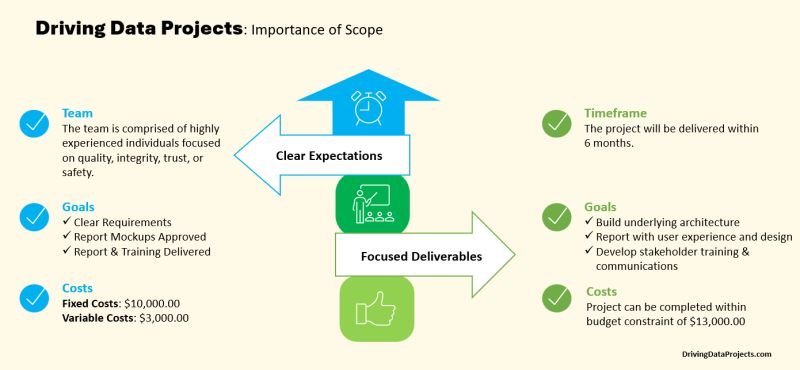
machine, my coworker
We often consider #digitaltechnologies like #dataplatforms #AI and #copilot features as tools. But if we're rethinking the #futureofwork and the future of careers and companies, it's helpful to think of these things as augmenting our efforts. For a copilot, in particular, it becomes a junior coworker or maybe a more senior coworker as the #AIskills get better.

3 Elements of Effective Sponsorship
A popular misconception of senior leadership is that effective executive sponsorship is a clearly understood skill. Many assume executives receive developmental feedback about becoming effective sponsors. Sadly, there is little training on sponsorship from middle management on up.

Linking Projects to Strategy
It can be challenging when stakeholders cannot translate business questions into technical requirements or do not provide enough context for data teams to do so. From there, the data team is often left to maintain the status of a series of ad hoc projects rather than connect these business questions to a larger more defined data strategy.

What does it take to become Data-Driven?
Since most people don’t know a lot about IT organizations or data teams it’s important to understand why moving from ad hoc efforts to a mature approach to driving data projects makes sense. The timing might not be right (now). Becoming data driven through data as a service requires a serious investment of resources, finances, staff, equipment, services, etc.; scaling efforts will only increase those topline demands. It’s a serious ongoing commitment many organizations find themselves surprised by—even today.

Back to Basics: Selling the Benefits of Data Projects
Data teams should be regarded as intentional business partners because they provide the underlying technology that enables business strategy and maintain data as a corporate asset. They can help educate business partners on the upstream and downstream impacts of poor data quality and they can help cultivate more effective ambassadors for data governance across the organization.

Finding Meaning in Data Projects by Asking: WHY
Most data teams cover WHAT and HOW with standard reports and KPIs. They will optimize processes and analyze business domains that will impact the company's bottom line from a data perspective. But how many data teams truly understand the WHY behind the reports they generate? How many actively consult with the business as a true partner to understand the underlying business concerns behind the numbers? Without the WHY, delivering true value in the WHAT and HOW is ten times harder.

The Importance of Scope
In driving data projects, I find people underestimate the impact of scoping projects effectively. Too often, you see technology leads with new platforms or tools looking for a problem to solve, or business leads with a unique one-off request from an executive reporting forum carry over to a data team as a priority requirement, whether it is or not.

Data Consumers Must Be Mechanics & Pilots: 5 Takeaways from the Guide
As data consumers, we need to be both mechanics and pilots. We must know how to gather, cleanse, and prep—and present data, make data-driven decisions, and influence data. That is a very broad set of skills.

Dos and Donts for Analysts Relying on ChatGBT
Data analytics is filled with complexity. Anyone saying otherwise is selling products. Knowing the data sources, data sets, general lineage, and behavior of the numbers are table stakes for the average data consumer. We must know where our data comes from. Much like we need to know where our food comes from and how it's processed. Is it safe to consume?